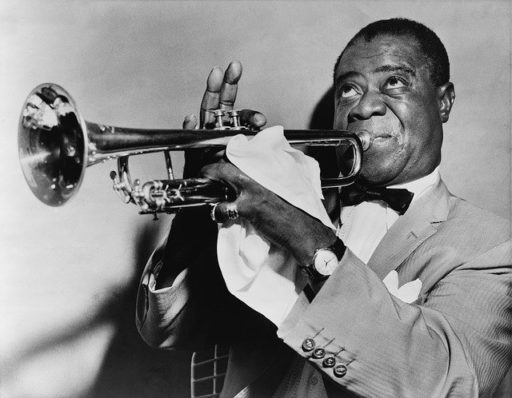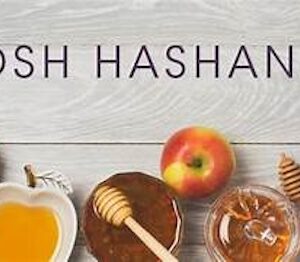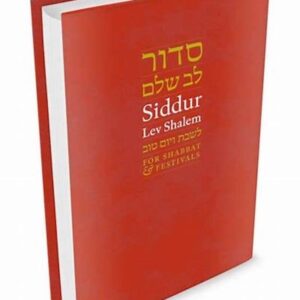First they came for the socialists, and I did not speak out—
because I was not a socialist.
Then they came for the trade unionists, and I did not speak out—
because I was not a trade unionist.
Then they came for the Jews, and I did not speak out—
because I was not a Jew.
Then they came for me—
and there was no one left to speak for me.
It’s easy to say this. I’ve said it aloud dozens of times at Holocaust remembrance ceremonies. Its author: Martin Niemöller. I understood that he was a prominent German Protestant pastor who lived during the Holocaust. I never bothered to learn anything else about him. It’s easy to agree with his message: we’re in this together; don’t be silent when one group or another is targeted. Harder, though—for me, at least—to act on it.
*
Barukh Atah Y-H-V-H Eloheynu Melekh Ha’olam, pokeyach evrem; Blessed are you, Y-H-V-H, our God, Master of the Universe, who gives sight to the blind. That’s one of the morning blessings. I have said it countless times. Seeing is a gift. I know that—with my head. Some mornings when I say the blessing, I also know it in my body. I am aware of the experience, in the moment, of sight. That gift. Then I feel gratitude.
*
Surprised by his question, Blind Boone’s mother took him by the hand and led him to “a small/sapling that stood not/much taller than me.”
I could smell the green marrow of its promise reaching free of the soil like a song from Earth’s royal, dirty mouth. Then Mother told me how she, newly freed, had prayed like a slave through the night when the surgeon took my eyes to save my fevered life, then got off her knees come morning to take the severed parts of me for burial—right there beneath that small tree. They fed the roots, climbed through its leaves to soak in sunlight… and so, she told me, I can see.
*
I see. I see.
*
Who’s Blind Boone? Until I read Tyehimba Jess’s inventive, illuminating, historically-informed Pulitzer-Prize winning book Olio, I’d never heard of him or most of the other “first-generation-freed” figures who speak–who sing!–in the book: Henry “Box” Brown, The Fisk Jubilee Singers, Sissieretta Jones, “Blind” Tom Wiggins, and others. An “olio” is “the second part of a minstrel show which featured a variety of performance acts and later evolved into vaudeville.” An American form. After he defines “olio,” Jess introduces the featured performers of his Olio.
Meet John William “Blind” Boone (1864-1927): “Sprung from a Yankee bugler and a newly freed mother, his sight was sacrificed to encephalitis at the age of six months. Possessed by a prodigious memory, perfect pitch, and a particular partiality to piano, from which he sees and he sees and he sees…”
*
The video.
The protests.
I see.
*
I see the email message.
On June 4, two colleagues announce a summer learning circle: 21-Day Racial Equity Habit Building. I join. The commitment: read, watch, listen to something on race in America every day for 21 days. Log what you’ve read, watched, and listened to and record your reflections on it.
*
“Our first most original art form arose from our original sin.…” That’s Wesley Morris in “American Popular Music,” his contribution to 1619, an issue of the New York Times Magazine. “Original art form”: spirituals, ragtime, blues, jazz, funk, hip-hop. “Original art form”: “song from Earth’s royal, dirty mouth.” “Original sin”: you know.
Until I joined the faculty learning circle, the 1619 issue, published in August 2019, had been sitting on the stack of things to read beside my bed. I needed to learn more about slavery and the black experience in America. But there were always other things I wanted to read. Someday I’d get around to it. 1619 could wait.
*
A few notes from my log:
“Our last names belong to the white people who once owned us… many black Americans… give our children names that we create, that are neither European nor from Africa, a place we have never been… an act of self-determination. When the world listens to quintessential American music, it is our voice they hear. The sorrow songs we sang in the fields… became American gospel. Amid… violence and poverty… we birthed jazz and blues”: “The Idea of America,” Nikole Hannah-Jones, creator of the 1619 project.
…so, “minstrelsy”: whites performing in blackface… then blacks having to cork their faces to perform the “blackness” that whites wanted to see, performing black but under the control of whites. “The filthy scum of white society,” writes Frederick Douglass of “white blackface minstrels’ disrespectful blackness.” But “without that scum, I’m not sure we get an event as shatteringly epochal as the reign of Motown Records” (Wesley Morris, “American Popular Music”).
*
I love Motown. Who doesn’t? I’ve been to Hitsville U.S.A., the Motown Museum in Detroit, twice.
“Motown,” writes Morris, “was a full-scale integration of Western, classical orchestral ideas (strings, horns, woodwinds) with the instincts of both the black church (rhythm sections, gospel harmonies, hand claps) and juke joint Saturday nights (rhythm sections, guitars, vigor). Pure yet ‘noisy.’… Even now it feels like an assault on the music made a hundred years before it.… [I]ts stars, those songs and their performance of them, were declarations of war on the insults of the past and present.… How radically optimistic a feat of anti-minstrelsy, for it’s as glamorous a blackness as this country has ever mass-produced and devoured.”
I see.
As a kid, I danced to Motown at bar and bat mitzvah parties. Decades later, as a white man, I was in the minority among black families—three generations—visiting Hitsville. To what extent was Motown mine?
*
As a ten-year-old kid, Blind Boone ran away from home “to make/my mark with a would-be manager.” But “instead of money,” the would-be manager, recalls Boone in Jess’s poem “Blind Boone’s Rage,” spoke “of sudden fees I owed.”
…my debts had grown and signed my folks into debt— … they’d find themselves sued into ruin if I didn’t grind those piano keys like his trained monkey. This went on night after night, while in the day I’d be confined to locked rooms. … … soon enough I began to know my mother’s slavery—note by note, song by song. He took the one thing I truly owned and smothered it with hate till every finger I lifted for music bore the weight of shackles and chains.
Fortunately, Boone is rescued by his step-father. The poem concludes,
I swear it now and I swore it then— I’ll never slave my music for no man again. I ain’t bendin over no piano like a plow on a sharecropper’s piece. I ain’t no beast bent to push ivory keys. I’ll be free as I play or I won’t play at all —I’ll just play the notes inside my skull alone in the dark where they roam around loose. ‘Cause playing like a slave, I’d just step myself straight into a hangman’s noose.
*
How did I get to be 66 years old and not know that my freedom to choose when and how to learn about the black experience in America was a privilege?
*
For most of my life, I believed I was exceptional. Why? Because I’m a Jew. And the message I inhaled growing up in a middle-class, assimilated Jewish family in Cherry Hill, New Jersey, was that Jews are smart. Jews are successful. I’m not an American. I’m a Jew who happens to live in America. I know my people’s history and how I wound up here.
Now I see: I’m also white. I’m a white American. My good fortune, my education, my health, my house, my freedom, my “blessings” in this life: how much of this is because I’m white?
*
“We saw a man die before our very eyes,” writes Isabel Wilkerson in “America’s Enduring Caste System” (NY Times Magazine, July 1, 2020). “What we did not see, not immediately anyway, was the invisible scaffolding, a caste system with ancient rules and assumptions that made such a horror possible, that held each actor in that scene in its grip.”
*
Martin Niemöller (1892 – 1984): I read the entry on him in the “Holocaust Encyclopedia,” United States Holocaust Memorial Museum. One day he’s an enthusiastic supporter of the Third Reich, the next a critic of the Nazi party for trying to interfere with the church. An antisemite, then, after the war, a pacifist. A complicated guy.
I see.
*
What changes now that I’ve become a little more aware of the histories that shape me? The cultures that inspire me?
They came for…, and I did not speak out.
I see.
Barukh atah Y-H-V-H eloheynu melekh ha’olam, pokeyach evrem; Blessed are you, Y-H-V-H, our God, Master of the Universe, who gives sight to the blind.
Richard Chess directed the Center for Jewish Studies at UNC Asheville for 30 years. He helps lead UNC Asheville’s contemplative inquiry initiative. He is a board member for the Center for Contemplative Mind in Society. He’s published four books of poetry, the most recent of which is Love Nailed to the Doorpost. You can find him at http://www.richardchess.com





